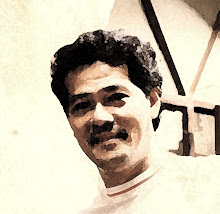"It's on the tip of my tongue!"
"I can't seem to recall a thing!"
"Sorry, I have a very short memory!"
"Where was I?"
If there is one fact about memory that all of us know, it is that we do not remember everything. In fact, there are times when it seems we can't remember anything. People's names, appointments, material crammed for an exam, telephone numbers--all escape us just when we need them most. At the same time, we often remember other things that don't strike us as being very important. Research has been done on this problem and psychologists have several theories to explain how and why we seem to forget material we have learned.
One explanation why we forget is the interference theory. We have all had the embarrassing experience of being interrupted in the middle of a conversation and not being able to pick up where we left off. We completely forget what we were talking about. Often, the people we were talking with will help out by giving us a cue.
"Where was I?" phenomenon illustrates the role of interference. It refers to the fact that new material gets in the way of old material. This type of interference is called retroactive, we remember the new information but forget the old information. We have been interrupted and the new experience interfered with our memory of the earlier discussion. The new material overpowers the older learned material and becomes stronger and more dominant n our memory. It causes the other knowledge to be unlearned--we forget old material so that we may learn new material more readily. This view suggests that there is limit to the amount stored in memory at any one time. As new information arrives, it pushes out things that are already in readily available locations. If no additional information comes in, then no forgetting will occur.
One explanation why we forget is the interference theory. We have all had the embarrassing experience of being interrupted in the middle of a conversation and not being able to pick up where we left off. We completely forget what we were talking about. Often, the people we were talking with will help out by giving us a cue.
"Where was I?" phenomenon illustrates the role of interference. It refers to the fact that new material gets in the way of old material. This type of interference is called retroactive, we remember the new information but forget the old information. We have been interrupted and the new experience interfered with our memory of the earlier discussion. The new material overpowers the older learned material and becomes stronger and more dominant n our memory. It causes the other knowledge to be unlearned--we forget old material so that we may learn new material more readily. This view suggests that there is limit to the amount stored in memory at any one time. As new information arrives, it pushes out things that are already in readily available locations. If no additional information comes in, then no forgetting will occur.





4 comments:
My memory is long, lalo na sa mga may utang sa akin ha ha ha!!!
Wala akong utang sa 'yo ha?
I have a vast memory ng masayang kahapon, pero ang mga malungkot, kinalimutan ko na, eraseeee.... eraseeee... eraseeee...!!!
I always see to it na hindi ako magka-cramming, tulad ng payo mo.
n2e70f0z09 z1l61c5m81 f2a33p2u64 k7x11z6m01 r4n42v9z04 m2z37e2y76
Post a Comment